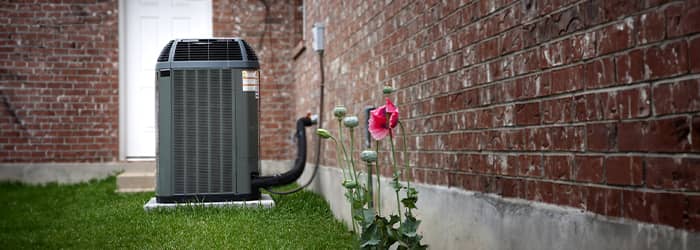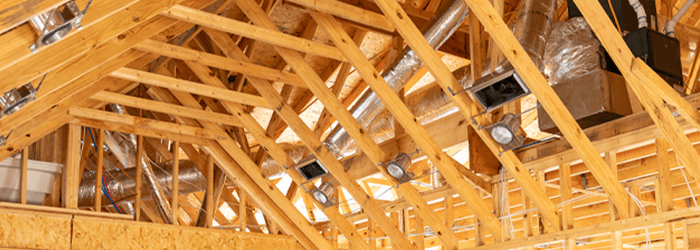FACTS YOU NEED TO KNOW ABOUT AIR CONDITIONERS
You’re about to hold a big birthday party at your house in mid-July and the air conditioner won’t come on. You’ve been thinking about replacing it for a long time, but you keep putting it off – probably because you don’t know whether it has any life left in it. And now, there’s a crisis.
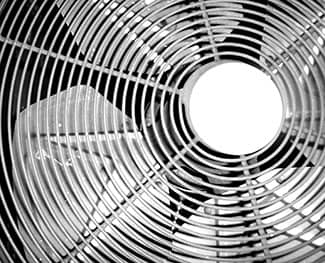
What you probably want to know is: How long is an air conditioner supposed to last and what are the signs it really must go?
Here are five basic questions plus answers that might help you decide whether to replace that AC:
1 | Is an expensive mechanical repair necessary?
If your air conditioner experiences a breakdown, the size and cost of the repairs can play a role in whether to replace it or not. Frequent repairs can also mean that your AC cannot be fixed any more.
According to Richard Rojo, sales leader for Ingersoll Rand Trane Residential in the Southwest: “Not all repairs are equal. Our industry considers some repairs minor such as replacing contactors, relays, motors, run caps, blades and so on. Repairs in the refrigerant circuit like compressors, expansion valves, reversing valves and coil replacements are considered major. Major repairs are what I call ‘open heart surgery.’ If the manufacturer’s warranty has expired, you may want to replace the AC because it is getting too expensive to keep the system going.”
2 | How old is too old for your air conditioning system?
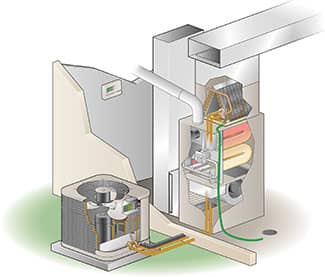
Many AC systems out there run well past 20 to even 30 years old. Similar to the auto industry, air conditioners are not designed to last 30 years. A 30-year-old vehicle may still get you where you want to go, but the vehicle does not get very good gas mileage or contain air bags. The average life of an AC system is roughly 13 years. “Some systems can last a lot longer, and some can last a lot less,” Rojo says.
3 | Is your air conditioner out-of-date and less efficient?
If your air conditioner is more than 10 years old, it could be you’re missing out on efficiencies that are now being built in to the newer models. Today’s air conditioners have a required seasonal energy efficiency ratio or SEER rating of 14 or more. Twenty-one years ago, the standard was only 10.
That rating is used to measure how much cooling a system puts out for each unit of energy it consumes. The higher the rating, the more efficiently your AC will do its job thus costing you less to cool in the long run. It’s even possible to buy an AC with a rating of 20. Those units are more expensive, of course, but your utility bill will be much lower.
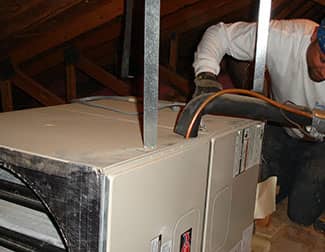
Those 20 SEER units are variable speed air conditioners. “Variable” speed means they run longer – at very low speeds. They can provide more comfort at a fraction of the cost of a conventional system. Variable speed units can adjust depending on demand.
Another problem with older air conditioners is that they may still use R22 refrigerant (Freon) to cool the air. The U.S. Environmental Protection Agency launched the phasing out of manufacture and importing of R22 in 2010. By 2020, it may no longer be available. So, if the cooling fluid in your AC is getting low, it might soon be very difficult to solve the problem. “This is another big factor when deciding to repair versus replace,” Rojo says.
4 | Is your AC too noisy and does it keep blowing a lot of dust in your house?
If your home is really dusty and your air conditioner is noisy, it’s possible that there are problems with your air ducts and there could even be a problem with the coil of your air conditioner. Buying a new AC could resolve some of these issues. Today’s newer systems are quieter, and we have technology to help reduce dust and eliminate airborne allergens.
5 | Are your utility bills growing bigger and bigger?
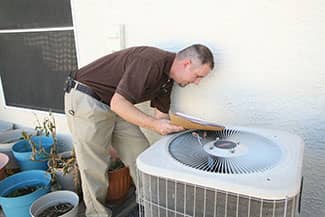
Rate increases from utility companies are bound to raise the cost of air conditioning for a long time. A new, more efficient air conditioner can help you hold down the cost of your utility bill in summer.
In many parts of the country, having an air conditioner is a luxury. But in much of Arizona having an AC that runs properly is about as important as having a refrigerator that cools the milk and makes ice cubes. You don’t want to lie awake perspiring at 2 a.m. when it’s still about 90 outside and wonder why that AC is not switching on.
A final note: Always remember if you buy a new air conditioner, to fill out paperwork for a warranty for your purchase from the manufacturer. In some cases, filling out extra documents can mean the warranty will last much longer.https://www.youtube.com/embed/1QlXBoc1LwA
SOME AC TERMS YOU MAY WANT TO KNOW:
Condenser:
The device outside your house that condenses incoming refrigerant vapor into liquid.
Compressor:
It’s located inside the condenser so it’s also outside. It raises pressure on the refrigerant and moves it along.
Coil:
The coil is part of the inside system of your air conditioner which cools and conditions air that is blown into your home.
Split system:
An air conditioning system with an indoor section and matching outdoor section connected by refrigerant tubing.
Package system:
An AC system with an indoor section and outdoor section all in one. This system is typically located on the roof.
###
Photo Credits:
RELATED CONTENT:
- Blog: Great Ways To Fight The Sun In Arizona
- Blog: Can You Cool Your House With Fans?
- Blog: Six Things You Need To Know About Evaporative Coolers
- DIY FAQ: Eight Smart Strategies When Buying An AC
- DIY FAQ: Consumer Guide for Buying a Home AC System
- Podcast: Quick Fixes Building Science With Energy Experts





